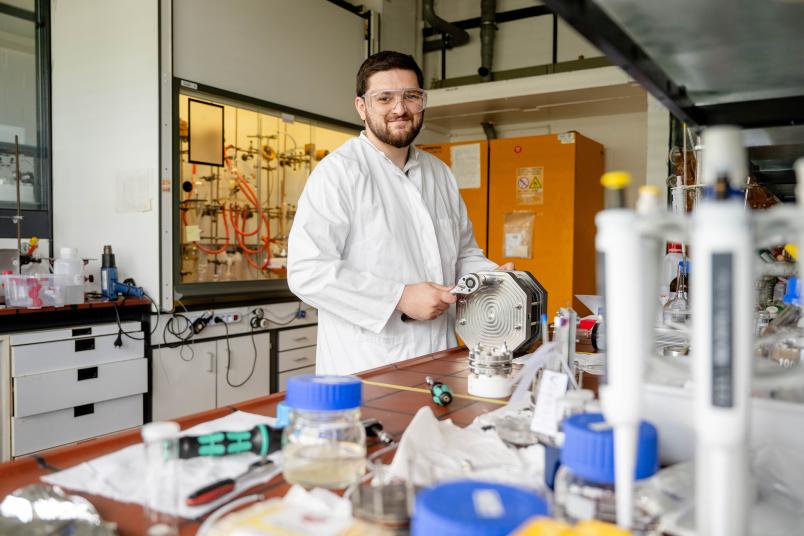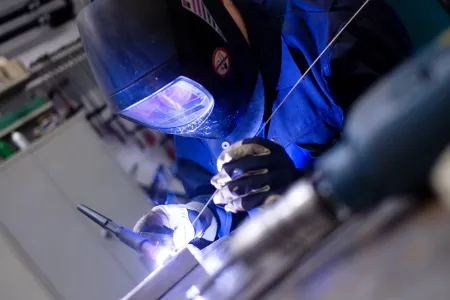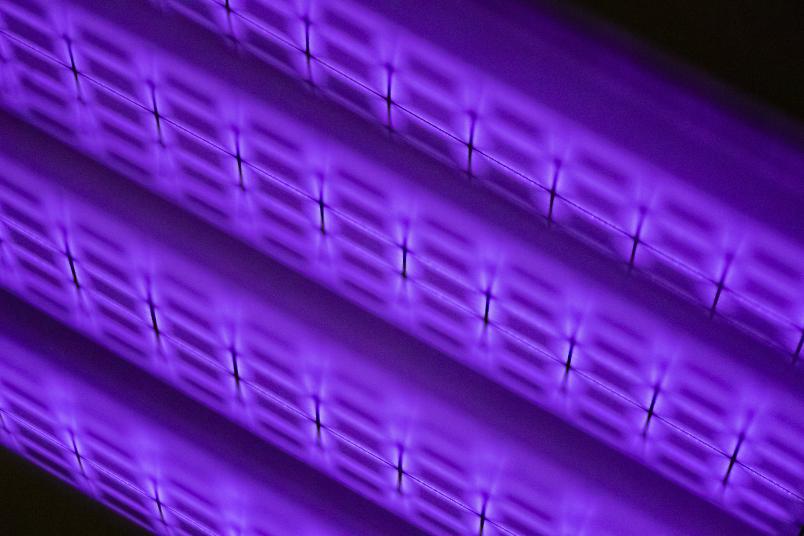
Materials Science
Kevinjeorjios Pellumbi optimises chemical reactions
“I want my research to have impact,” says the PhD student. That’s why he prefers to work on topics that help to solve the pressing questions of our time. And he does so with a lot of enthusiasm.
Mr. Pellumbi, what is in your opinion the most fascinating thing about materials science?
The most fascinating thing is answering the needs of society. I want my research to have impact, I want to help, for instance by developing a material that is needed to couple the chemical industry with renewable energies.
As a material scientist, I can tailor solutions for certain needs. But I can also create completely new things that nobody needs right now – but that will be helpful for everyone in ten years’ time. An example are lithium-ion batteries for energy storage which started at the lab scale and are now a household item.

The speed of this upscaling felt surprisingly quick.
What has been your most exciting research result so far?
The speed of developing electrodes, for instance for hydrogen production. When I started my Bachelor thesis, I worked with tiny electrodes of three millimetres size. Now, the technique has progressed so far that I am building electrodes for larger cells. We’re talking about a size of at least 300 square centimetres. The speed of this upscaling felt surprisingly quick.
And there is another thing that was quite exciting for me: in our lab, we are researching hydrogenation reactions, i.e., creating bonds with hydrogen. At least 25 percent of all processing steps in the chemical industry involve such reactions. They are currently catalyzed by the expensive precious metal palladium. In my research, I used metal sulfide instead – basically rocks that you find lying around in all kinds of places. Replacing palladium with the abundant metal sulfide was a really cool result.

I think I have a talent for mirroring the excitement of others.
You are a representative for early career researchers in the Materials Research Department. What was your motivation to take on that job?
I like science communication and bringing excitement to different topics. Sometimes it is important to transfer this excitement from PhD students to supervisors or even outside of the community. I think I have a talent for mirroring the excitement of others. What I mean is: if someone else is excited, I can be excited for his or her reasons. Thus, being a representative is a very interesting role because I can help to make different topics more visible.

